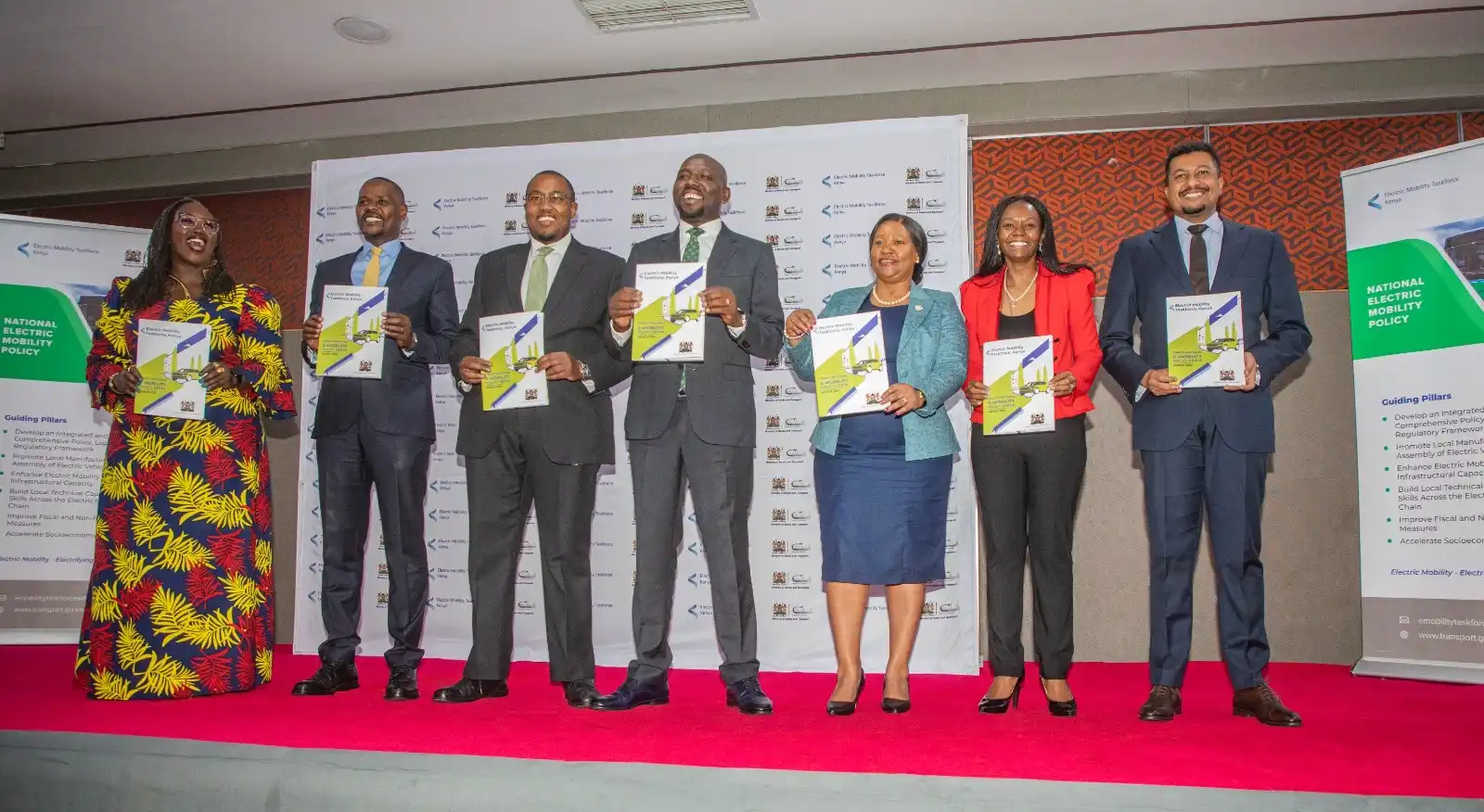Last week, Kenya launched its first Electric Mobility (e-mobility) Draft Policy that seeks to guide the development of electric mobility in all transportation modes – road, rail, air and maritime. The policy will provide a transition framework from the use of conventional internal combustion engine (ICE) vehicles. The draft policy was developed by the National Electric Mobility Task Force. The policy has a number of objectives including the development of a comprehensive framework to promote e-mobility adoption, local manufacturing of Electric Vehicles (EVs), enhancing infrastructural capacity, and improving technical skills in the e-mobility sector.
The policy will also address the issue of peak and off-peak demand in Kenya, suggesting that e-mobility could help bridge the gap by charging EVs at night. The policy estimates that the daily curtailed energy could power about 7,000 electric buses or over 200,000 electric motorcycles.
According to the Cabinet Secretary (CS) for Roads and Transport, Kipchumba Murkomen, adoption of electric mobility has a number of benefits including a reduction in emissions, lower operating costs, decreased reliance on imported fuels, and the creation of green jobs.
“To achieve this, we are partnering with the private sector, international investors,and academic institutions to build the necessary infrastructure,” said the CS.
The draft policy will be available for public participation where Kenyans can suggest improvements and share their input. The Public Participation forums schedule for all regions in the country will soon be published by the Ministry.
Green Colored Number Plates for EVs
The CS also said that the government will assign green-colored number plates for all electric vehicles in kenya. This will include two-wheelers and the aim is to raise awareness and encourage even more people to transition to EVs.
The ministry also plans to set up charging infrastructure at its headquarters at Transcom House. I am not sure if this will be enough but with the support of other stakeholders, we should see an increase in charging infrastructure across the country. Last year, Kenya Power said it was working with investors and stakeholders to support the development of the e-mobility ecosystem, which includes identifying potential charging station sites and developing geo-mapping software to locate the nearest charging station.KenGen also had plans to install Electric Vehicle charging stations across the country.

